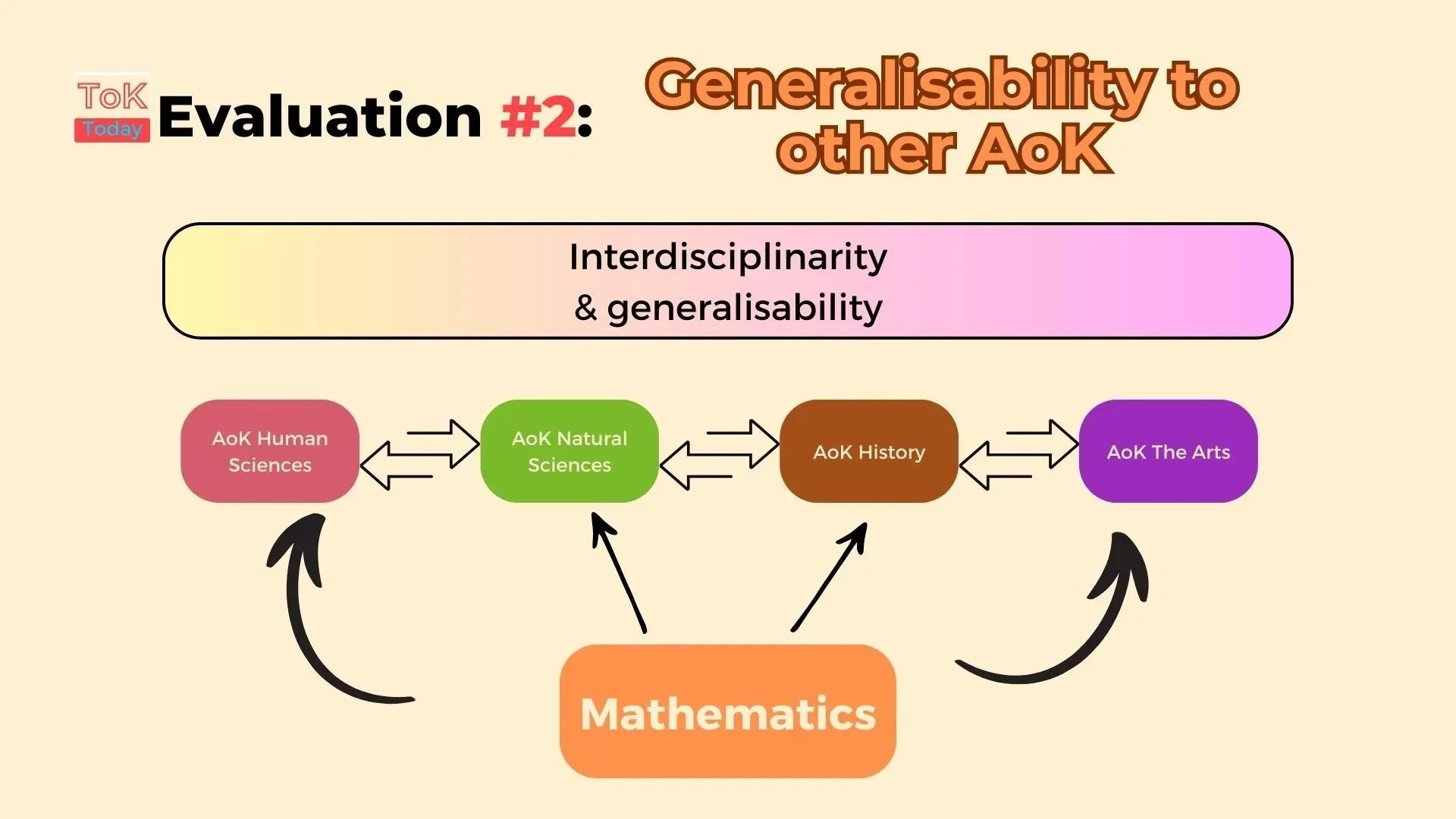How to Evaluate AoK Mathematics
Students hoping to score 5 or more marks in the Theory of Knowledge (ToK) Essay must evaluate the knowledge arguments made within the essay. This blogpost provides 4 general evaluation points for Area of Knowledge (AoK) Mathematics. These general evaluation points could be refined into more specific evaluation points for the particular knowledge arguments that the student has used in their essay.
This blogpost can also be watched as a video at this link, and below.
AoK Mathematics offers , in many ways, a more distinctive form of knowledge, and knowledge production, than the other AoKs. Evaluating mathematical knowledge involves understanding its strengths and limitations. Here, we explore four critical evaluation points: the development of hypothetical knowledge, the generalisability of mathematical knowledge, objectivity in understanding causal relationships, and the limitations in capturing qualitative human experiences.
1. Mathematical Models and Hypothetical Knowledge
One significant strength of mathematical knowledge is its ability to develop hypothetical knowledge through models. These models allow us to predict and forecast future events with remarkable accuracy. For instance, meteorologists use mathematical models to predict weather patterns, while economists rely on them to forecast market trends. By formulating equations and analysing data, mathematicians can simulate scenarios and estimate outcomes, providing valuable insights that inform decision-making across various fields. However, the accuracy of these predictions depends on the quality of the data and the assumptions underlying the models, highlighting the importance of critical evaluation.
2. Generalisability to Other Areas of Knowledge
Another crucial point in evaluating mathematical knowledge is its generalisability to other Areas of Knowledge. Mathematics, particularly statistics, plays a vital role in the Natural and Human Sciences. For example, biologists use statistical methods to analyse genetic data, while psychologists employ them to understand behavioural patterns. The universal nature of mathematical principles allows for a consistent framework that can be applied across disciplines, facilitating interdisciplinary research and enhancing our overall understanding of complex phenomena. This generalisability underscores the versatility and integrative power of mathematical knowledge.
3. Objective Understanding of Causal Relationships
Mathematical knowledge also enables the development of standardised and objective measures of causal relationships between phenomena. By using statistical techniques, researchers can determine the strength and significance of correlations, thereby identifying potential causal links. For instance, epidemiologists use mathematical models to understand the spread of diseases and the impact of interventions. This objectivity is crucial for developing evidence-based policies and practices, as it provides a clear, quantifiable basis for understanding how different factors interact and influence each other.
4. Limitations in Capturing Qualitative Human Experience
Despite its strengths, mathematical knowledge also has limitations, particularly in capturing the qualitative and subjective aspects of human experience. While mathematics excels in providing precise and objective information, it often struggles to encompass the nuances of human emotions, experiences, and cultural contexts. For example, the qualitative aspects of art, literature, and personal relationships cannot be fully quantified or expressed through mathematical equations. This limitation highlights the need for a balanced approach that incorporates both quantitative and qualitative methods to gain a more comprehensive understanding of the world.
In conclusion, evaluating mathematical knowledge requires a nuanced appreciation of its strengths and limitations. By considering its ability to develop hypothetical knowledge, its generalisability to other Areas of Knowledge, its role in understanding causal relationships, and its limitations in capturing qualitative human experiences, students can develop a deeper evaluations of mathematical knowledge.
This is part of a series of blogposts on how to evaluate knowledge in each of the 5 Areas of knowledge. The others are:
Evaluating knowledge in AoK The Arts
Evaluating knowledge in AoK History
Evaluating knowledge in AoK The Human Sciences
Evaluating knowledge in AoK The Natural Sciences
If you have feedback, or suggestions, on this (or any other) blogpost on TokToday please send it through to Daniel@TokToday.com. I welcome helpful suggestions for content, new ideas are a great way of paying forward!
Stay Tok-tastic my friends,
Daniel, Lisbon, June 2024



